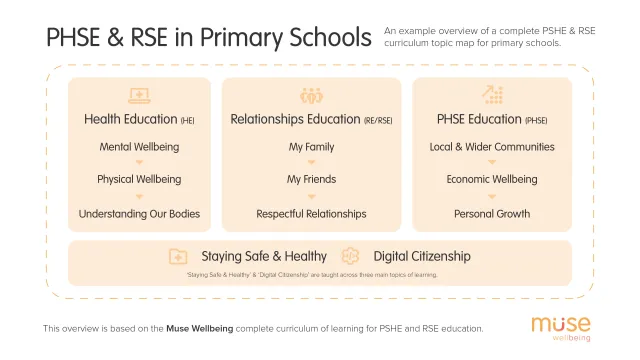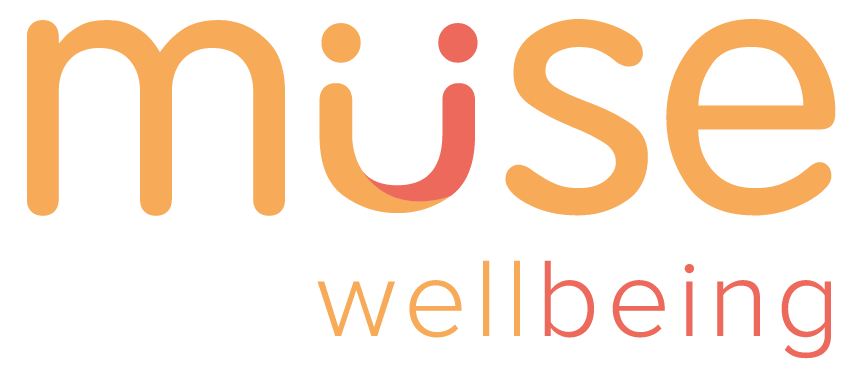Writing a PSHE Policy in Primary Schools

David is the Muse Wellbeing director and lead curriculum developer. His Main passions include education, surfing and travelling.

Tashia is a SENCO and LSA support lead with a love for inclusive education. An avid gardener, she enjoys the outdoors and hiking.
Writing a PSHE Policy in Primary Schools
A PSHE (Personal, Social, Health and Economic) policy is an important document that outlines your approach to delivering PSHE in your wider curriculum. This document will be unique to each school, but the goal should be universal – to provide a clear framework for parents, teachers and all stakeholders, so it is clear exactly what is being taught and how this will be delivered by teachers and school staff.
Why is Developing a PSHE Policy Important?
A PSHE policy acts as a guideline for all members of a school community to understand the curriculum, identify methods for delivery and begin building lessons and learning opportunities from. The policy outlines clear expectations on topics of study, which should be shared with parents, guardians and wider members of the school community.
Alongside PSHE, primary schools must also teach RSE or RE (relationships education) as part of their wider curriculum. These topics are very closely linked and a PSHE policy will often include all information regarding the school’s delivery of statutory relationships education.
Are PSHE and RSE the Same?
As of 2020, RE (relationships education) is a statutory subject in all primary schools. RSE (relationships and sex education) is statutory in secondary schools, though some aspects of the RSE curriculum may begin to be explored in lessons within a primary setting too. For example, within the Muse Wellbeing curriculum, students from Year 5 to Year 6 begin to explore introductory lessons on puberty.
PSHE is a non-statutory subject, though in reality it is very much expected that all schools deliver a comprehensive PSHE curriculum.
RSE has not replaced PSHE, but has become one integral segment of PSHE education overall.

PSHE lessons are a chance to give children skills that will benefit them long after they leave school, helping them become happy and healthy adults. A well developed PSHE policy allows schools to be as effective as possible in their delivery of learning.
- Supporting childhood development: PSHE, as well as relationships education (RE), play a critical role in the development of young children’s learning, helping them become resilient, mindful and caring of their own and others’ wellbeing.
- Setting students up for life: Developing an effective PSHE policy can provide a roadmap for members of a school community to create a holistic and exciting curriculum of learning.The skills students take from PSHE lessons will stay with them into adult life.
- Communicating trust and transparency: For students, learning takes place in the classroom, at home and in the wider community. By clearly informing all stakeholders of learning intentions, children will be further supported and therefore engage more actively.
Creating Your School’s PSHE Policy
Developing PSHE policy is imperative so all stakeholders are clear what is being taught within PSHE lessons and how this will be delivered to students. In order to develop a successful policy, the individual or group of staff members tasked with creating this document must consider core requirements, outcomes, timetable allocation and lesson plans.
Step 1: Defining Scope and Enabling Consultations
It is essential to clearly define and state the scope and learning intentions of the school’s PSHE curriculum. Of course, this includes aspects of teaching within RSE, of which school’s have flexibility in teaching aspects of sex education. It is important to involve teachers, students and parents in the process of creating a PSHE policy to ensure transparency and encourage engagement.
Step 2: Communicating and Supporting Understanding
The school must carefully consider how (and when) the policy will be introduced to the school’s wider community. This may be done within a school meeting or workshop type setting, but the policy can also be hosted on the schools website for further access availability. Within the policy, school’s should state how often and when the policy will be reviewed and amended to be most effective.
Step 3: Creating a Safe Learning Environment
Integrating equality, behaviour and inclusion principles within a school’s PSHE policy means all stakeholders are equally valued and are given equal access. Aligning with safeguarding policies addresses vulnerabilities and supports students’ well-being.
Some key aspects of a PSHE policy may include:
- Content and Schedule: Clearly outline the learning content and schedule of topics.
- Delivery Personnel: Specify who will deliver PSHE and RSE education in school.
- Policy Production and Review: Detail how the policy was developed and when it will be periodically reviewed.
- Accessibility Measures: Explain how the delivery of content will be accessible to all pupils, including those with SEND.
- Withdrawal Rights and Legal Compliance: Provide an explanation of the right to withdraw and ensure compliance with legal requirements such as the Equality Act.
Who Will Use the PSHE Policy?
When creating a PSHE policy, an important consideration is who you are writing the document for. The document should be clear, concise, and easy for all school community stakeholders to understand. Specifically, parents, carers and family members will likely also explore the policy to understand the topics covered with the wider PSHE and RSE curriculum.
Final Considerations
The importance of an effective PSHE curriculum and PSHE policy cannot be overstated. The lessons that children learn in PSHE during primary school play a crucial role in preparing them for their future lives. If you are looking for support developing your PSHE curriculum, our experts at Muse Wellbeing are here to help, offering a specialist, pre-made curriculum delivering high-quality education across all the essential topics. Get in touch with our friendly team today to get started.
Latest from our blog
Muse Wellbeing
Subscribe for RSHE & Wellbeing Updates & Learning Resources

Copyright © 2026 Muse | All Rights Reserved.
Would you like to logout of Muse Wellbeing?


